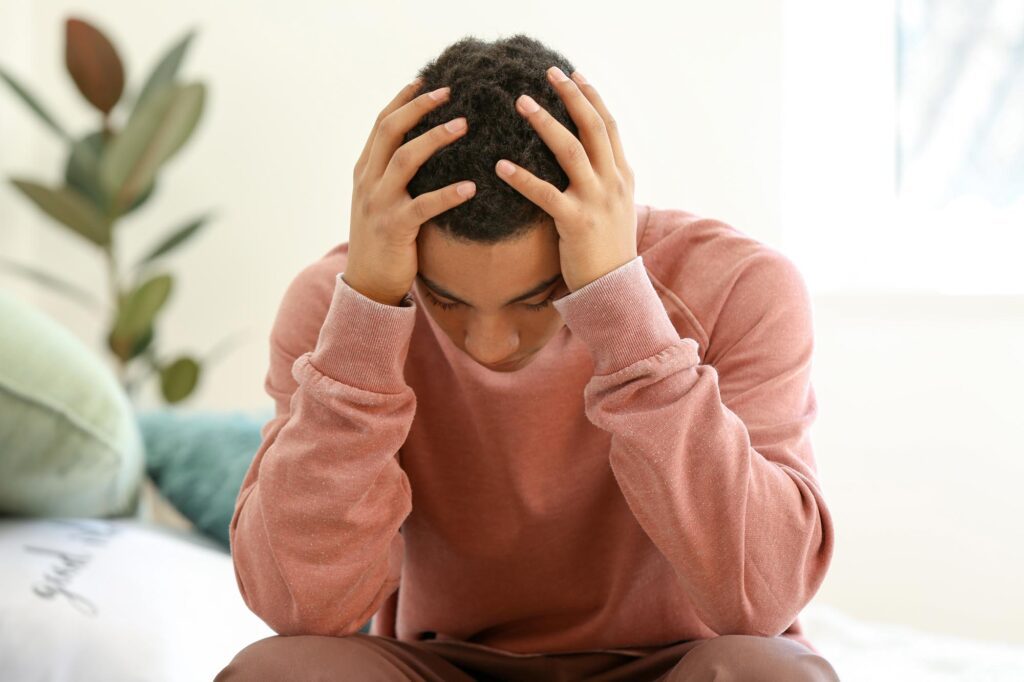Opioid addiction is a complex condition that goes beyond just physical dependence. It affects the brain’s ability to process reward, motivation, and memory, leading to negative impacts on personal health, relationships, and daily responsibilities.
The Diagnostic and Statistical Manual of Mental Disorders (DSM-5) outlines specific criteria for diagnosing opioid use disorder. These criteria assess patterns of use based on key factors, such as:
- Inability to control or reduce use despite repeated attempts
- Continued use despite knowledge of physical or psychological problems
- Development of tolerance requiring increased amounts for the same effect
- Experience of withdrawal symptoms when use is discontinued
- Neglect of important social, occupational, or recreational activities
To receive a diagnosis, at least two criteria must be met within a twelve-month period. The severity of the disorder can be classified as mild (2-3 criteria), moderate (4-5 criteria), or severe (6 or more criteria).
Early recognition and intervention can greatly improve treatment outcomes and prevent the progression of this disease. When individuals and families are aware of the warning signs and seek professional opioid addiction treatment promptly, they lay the groundwork for lasting recovery and renewed hope for the future.
Understanding Opioid Addiction
Opioids fundamentally alter brain chemistry by binding to specific receptors that control pain and pleasure. With repeated use, the brain adapts by reducing its natural production of feel-good chemicals and decreasing receptor sensitivity. This neuroadaptation creates tolerance, requiring increasingly larger doses to achieve the same effects, while physical dependence develops as the body becomes reliant on the substance to function normally.
When opioid use stops or decreases significantly, withdrawal symptoms emerge as the brain struggles to regain balance. These symptoms typically include:
- Physical discomfort: Muscle aches, nausea, vomiting, diarrhea, and intense cravings
- Sleep disturbances: Insomnia and restless leg syndrome
- Emotional volatility: Irritability, anxiety, and mood swings
Withdrawal symptoms generally peak within 72 hours and can persist for several weeks, though the timeline varies based on the specific opioid used and duration of addiction.
The behavioral hallmarks of opioid addiction become increasingly apparent as the condition progresses. Compulsive drug-seeking behavior dominates daily life, with individuals continuing use despite experiencing significant harm to their health, relationships, or responsibilities. The inability to stop using, even when desperately wanting to quit, reflects the powerful grip addiction has on brain function.
Emotional and psychological changes accompany these physical symptoms. Anxiety and depression frequently co-occur with opioid addiction, while social withdrawal becomes common as individuals prioritize substance use over meaningful relationships. Recognizing these interconnected symptoms helps identify when opioid addiction treatment becomes necessary for recovery.
You don’t have to figure this out alone. Reach out to the compassionate team at Abhaya Wellness to learn how our opioid addiction treatment can help you heal.
Health Consequences of Opioid Abuse
The physical toll of opioid misuse extends far beyond the immediate effects of intoxication, creating a cascade of serious medical complications that can permanently damage vital organ systems. Understanding these health risks underscores the critical importance of seeking opioid addiction treatment before irreversible damage occurs.
Infectious Disease Complications
Injection drug use significantly increases exposure to life-threatening infections:
- Endocarditis, an infection of the heart’s inner lining, can destroy heart valves and require emergency surgery.
- Cellulitis and abscesses frequently develop at injection sites, potentially spreading to deeper tissues and bones.
- Shared needles create pathways for hepatitis B, hepatitis C, and HIV transmission, conditions that require lifelong medical management.
Organ System Damage
Respiratory complications represent some of the most dangerous consequences of opioid abuse:
- Lung disease from inhaled contaminants and reduced oxygen levels
- Cardiovascular events including irregular heartbeat and collapsed veins
- Liver damage from contaminated drugs or concurrent alcohol use
- Kidney dysfunction from chronic dehydration and toxin exposure
Fatal Overdose Risk
The most devastating consequence remains overdose death. Opioids suppress the central nervous system, slowing breathing and heart rate to dangerous levels. Each use carries the potential for fatal respiratory depression, particularly when combined with alcohol or other depressants. Without professional intervention, the risk of overdose increases exponentially as tolerance builds and individuals require higher doses to achieve the same effects.
Assessing If You Need Opioid Addiction Treatment
Knowing when to seek professional help for opioid addiction involves being honest with yourself and getting a clinical evaluation. There are several reliable self-assessment tools available that can assist in identifying problematic patterns of opioid use and determining the severity of addiction.
Self-Assessment Indicators
Here are some key warning signs that suggest you may need opioid addiction treatment:
- Using opioids in larger amounts or for longer periods than intended
- Unsuccessful attempts to cut down or control use
- Spending significant time obtaining, using, or recovering from opioids
- Experiencing strong cravings or urges to use
- Failing to fulfill major responsibilities at work, school, or home
- Continuing use despite persistent social or interpersonal problems
Professional Clinical Assessment
Healthcare providers and addiction specialists conduct comprehensive evaluations that extend beyond self-reporting. These assessments typically involve:
- Physical examinations to identify signs of opioid use and related health complications
- Laboratory testing including urine screens and blood work to detect recent substance use
- Structured interviews using standardized diagnostic criteria from the DSM-5
Impact of Co-occurring Mental Health Conditions
Mental health disorders significantly influence treatment planning and outcomes. Conditions such as depression, anxiety, PTSD, or schizophrenia often co-exist with opioid addiction, creating complex clinical presentations that require specialized care approaches. These dual diagnoses necessitate integrated treatment strategies that address both the addiction and underlying mental health symptoms simultaneously, as treating one condition while ignoring the other typically leads to poor recovery outcomes.
Our Approach to Starting Opioid Addiction Treatment
At Abhaya Wellness, we understand that beginning opioid addiction treatment requires a comprehensive, medically-supervised approach that prioritizes your safety and long-term recovery success. Our clinical team begins with a carefully structured detoxification process, providing 24/7 medical supervision to manage withdrawal symptoms safely and comfortably. This critical first step allows your body to eliminate opioids while our healthcare professionals monitor vital signs, administer supportive medications, and ensure your physical stability throughout the process.
Medication-assisted treatment (MAT) forms the cornerstone of our evidence-based approach.
Your treatment plan reflects your unique needs, incorporating your mental health status, family dynamics, work obligations, and personal recovery goals. We integrate mindfulness-based interventions with clinical protocols, creating a gender-responsive environment that honors your individual identity and experiences. This personalized approach ensures that every aspect of your care addresses the complex factors contributing to your addiction while building sustainable recovery skills.
Types of Opioid Addiction Treatment Programs
Opioid addiction treatment encompasses various program structures designed to meet diverse patient needs and circumstances. The choice between treatment modalities depends on addiction severity, personal responsibilities, and individual recovery goals.
Inpatient vs. Outpatient Care
Residential inpatient programs provide 24/7 medical supervision and structured environments for individuals with severe addiction, multiple failed treatment attempts, or significant medical complications. These programs typically last 30-90 days and offer intensive therapeutic interventions away from environmental triggers.
On the other hand, outpatient programs allow patients to maintain work, school, and family commitments while receiving treatment. These programs suit individuals with strong support systems, less severe addiction patterns, or those transitioning from inpatient care.
Evidence-Based Behavioral Therapies
Psychological interventions form the foundation of comprehensive opioid addiction treatment:
- Cognitive-Behavioral Therapy (CBT) helps patients identify triggers, develop coping strategies, and modify thought patterns that contribute to substance use.
- Family therapy addresses relationship dynamics, improves communication, and builds supportive home environments essential for sustained recovery.
Abhaya Wellness Gender-Responsive IOP
Our specialized approach at Abhaya Wellness recognizes that gender identity significantly impacts mental health and recovery experiences. We offer a unique Gender-Responsive Mindfulness-Based Intensive Outpatient Program which creates safe, healing environments that honor each person’s unique journey.
The program’s mindfulness practices enhance present-moment awareness, helping participants recognize thoughts, emotions, and physical sensations while developing healthy stress management techniques.
Program Components
Key components of our Gender-Responsive Mindfulness-Based Intensive Outpatient Program include:
- Individual and group therapy using trauma-informed, evidence-based practices
- Daily mindfulness meditation sessions
- Gender-responsive programming tailored to individual needs
- Holistic services including yoga and art therapy
- Family therapy and support groups
Flexible scheduling accommodates work and educational commitments through day and evening programming options.
For women seeking a tailored approach to recovery, we provide a Women’s Intensive Outpatient Program. This 12-week program is designed to support and empower women on their journey towards lasting recovery from substance abuse.
Similarly, our Men’s Intensive Outpatient Program offers a mindful path of recovery specifically for men. This 12-week program located in Durham, NC is structured to address the unique challenges faced by men in their recovery journey.
Supporting Long-Term Recovery and Relapse Prevention
Successful opioid addiction treatment goes beyond just detoxification and early intervention. To maintain recovery, it’s important to stay committed to evidence-based practices and receive ongoing medical support.
The Role of Medication-Assisted Treatment (MAT) Adherence
Medication-Assisted Treatment (MAT) Adherence is crucial for long-term success. Here’s how it works:
- Regular attendance at scheduled appointments ensures proper medication monitoring and dosage adjustments.
- Drug screenings provide objective measures of progress while maintaining accountability within the treatment framework.
- These structured touchpoints create stability and reinforce positive behavioral patterns essential for sustained recovery.
Understanding Relapse as Part of the Recovery Journey
Recovery journeys rarely follow a straight path. Relapse is a common experience rather than a sign of treatment failure, affecting approximately 40-60% of individuals during their recovery process.
When setbacks happen, treatment teams respond by:
- Reassessing current medication protocols
- Adjusting therapeutic interventions
- Identifying environmental or emotional triggers
- Strengthening support systems and coping strategies
The Importance of Naloxone Access
Naloxone access is a critical safety measure for individuals and their families. This life-saving medication rapidly reverses opioid overdoses by blocking opioid receptors in the brain.
Training family members and close contacts on proper naloxone administration creates an essential safety net during vulnerable moments.
Being Prepared for Emergencies
Emergency preparedness involves recognizing overdose symptoms such as blue lips, slow breathing, and unresponsiveness. Having naloxone readily available, along with immediate emergency medical contact, can mean the difference between life and death during crisis situations.
The Impact of Opioid Addiction on Relationships and Work Life

Opioid addiction creates profound disruptions that extend far beyond the individual, affecting every aspect of personal and professional relationships. The progressive nature of addiction gradually erodes the foundation of trust and connection that sustains meaningful relationships.
How Opioid Addiction Affects Family Relationships
Family relationships bear the heaviest burden as addiction behaviors intensify. Parents struggling with opioid use may become emotionally unavailable to their children, while spouses experience feelings of betrayal, fear, and helplessness. Extended family members often find themselves caught between enabling behaviors and setting necessary boundaries. The unpredictability of addiction-related mood swings, financial strain from drug purchases, and potential legal issues create an environment of chronic stress and instability.
The Impact on Friendships and Social Connections
Friendships and social connections deteriorate as individuals prioritize drug-seeking behaviors over maintaining relationships. Social isolation becomes common as shame and the need to conceal addiction behaviors lead to withdrawal from previously enjoyed activities and relationships.
Challenges in the Workplace Due to Opioid Addiction
The workplace presents unique challenges for those struggling with opioid addiction. Decreased productivity, frequent absences, impaired judgment, and safety concerns can jeopardize employment security. Students face similar academic consequences, including declining grades, missed classes, and inability to meet educational commitments.
The Role of Relational Impacts in Opioid Addiction Treatment
Effective opioid addiction treatment recognizes these relational impacts as integral to recovery success. Involving trusted family members and friends in treatment planning creates a supportive network that enhances long-term recovery outcomes. Family therapy sessions help repair damaged relationships while establishing healthy communication patterns and realistic expectations for the recovery journey.
Preventive Measures to Avoid Opioid Addiction
Prevention remains the most effective strategy for addressing the opioid crisis. Healthcare providers play a crucial role by implementing evidence-based prescribing practices that minimize addiction risk while managing legitimate pain concerns.
Responsible Prescribing Practices
Medical professionals can significantly reduce addiction potential by:
- Prescribing at the lowest effective dose for the shortest duration necessary
- Conducting thorough patient assessments including addiction history screening
- Regular monitoring and follow-up appointments to evaluate treatment effectiveness
- Implementing prescription drug monitoring programs to track patient medication history
Alternative Pain Management Strategies
Non-opioid approaches offer effective pain relief without addiction risks:
- Physical therapy and rehabilitation services
- Non-steroidal anti-inflammatory drugs (NSAIDs)
- Topical pain relievers and nerve blocks
- Mindfulness-based pain management techniques
- Acupuncture and massage therapy
Safe Medication Storage and Disposal
Proper handling of prescription opioids prevents unauthorized access:
- Store medications in locked cabinets away from children and visitors
- Never share prescription medications with others
- Utilize community drug take-back programs for safe disposal
- Remove personal information from prescription bottles before disposal
These preventive measures create multiple barriers against opioid misuse. When prevention efforts fall short and addiction develops, seeking professional opioid addiction treatment becomes essential for recovery and long-term health outcomes.
Getting Help with Abhaya Wellness
At Abhaya Wellness, we believe healing happens when evidence-based medication-assisted treatment meets the transformative power of mindfulness-centered psychotherapy. Our comprehensive approach to opioid addiction treatment recognizes that recovery extends beyond addressing physical dependence—it requires nurturing your whole person.
Our treatment philosophy centers on creating individualized care plans that honor your unique journey. We understand that opioid addiction often coexists with underlying mental health conditions such as anxiety, depression, or trauma. Through our holistic methodology, we address these interconnected challenges simultaneously, providing you with the strongest foundation for lasting recovery.
Treatment options include:
- Inpatient rehabilitation programs for intensive, round-the-clock support
- Flexible outpatient care that accommodates your daily responsibilities
- Mindfulness-based therapeutic interventions
- Comprehensive mental health assessments and dual diagnosis treatment
Your path to wellness begins with a single conversation. Contact us today for a thorough assessment where our clinical team will work collaboratively with you to design a personalized treatment plan that aligns with your specific needs, circumstances, and recovery goals. Reach out to Abhaya Wellness today to start your journey towards healing.
FAQs (Frequently Asked Questions)

What is opioid addiction and how is it diagnosed?
Opioid addiction is a chronic brain disease that negatively impacts health, relationships, and daily functioning. It is diagnosed based on clinical criteria for substance use disorder outlined in the DSM-5 by the American Psychiatric Association, which includes patterns of compulsive drug use despite harmful consequences.
What are the common signs and symptoms of opioid addiction?
Common signs include increased tolerance to opioids, physical dependence, withdrawal symptoms such as anxiety and depression, compulsive drug-seeking behavior, social withdrawal, and inability to stop using despite harm.
What treatment options are available for opioid addiction?
Treatment options include medically supervised detoxification, medication-assisted treatments (MAT) like methadone, buprenorphine with naloxone, and naltrexone to reduce cravings and prevent relapse. Behavioral therapies such as cognitive-behavioral therapy (CBT) and family therapy are also essential components.
What is gender-responsive treatment in opioid addiction recovery?
Gender-responsive treatment recognizes the unique experiences and needs based on gender identity. It provides a safe, supportive environment sensitive to gender diversity through tailored programming including mindfulness meditation, trauma-informed care, holistic therapies like yoga and art therapy, and family involvement.
How can I assess if I need opioid addiction treatment?
Self-assessment tools can help evaluate addiction severity. However, professional assessment by healthcare providers or addiction specialists using physical exams and drug testing is crucial. Co-occurring mental health disorders such as schizophrenia or depression should also be considered when determining treatment needs.
How does Abhaya Wellness support long-term recovery from opioid addiction?
Abhaya Wellness combines evidence-based medication-assisted treatment with psychotherapy rooted in mindfulness principles. They offer individualized inpatient and outpatient programs focusing on physical dependence and underlying mental health issues. Support includes scheduled appointments, drug screenings, relapse prevention strategies, family therapy, and emergency overdose reversal education using naloxone.
If you are asking this question, getting a professional assessment is a courageous and important next step. Contact Abhaya Wellness today for a confidential conversation about your options.
